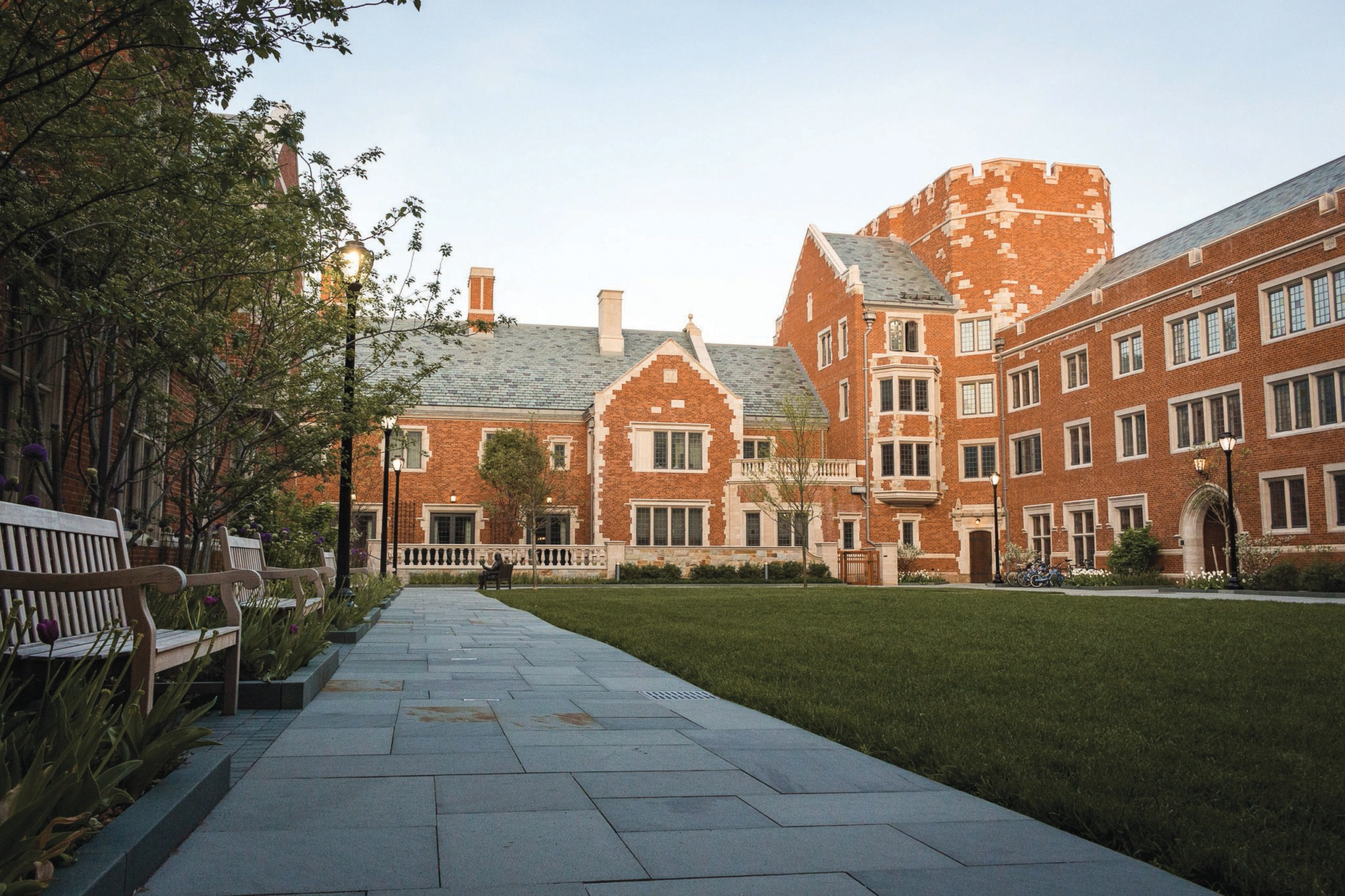Amid higher demand for on-campus housing, students say process is stressful, inequitable
As the semester comes to a close, students engage in the often stressful process of determining housing for next school year.

Daniel Zhao, Senior Photographer
As the spring semester concludes and fall term plans begin to take shape, Yale College students have been undergoing the often stressful process of determining their housing for next semester. This year, higher demand for on-campus housing, coupled with the housing process aligning with early course registration and finals period, made the housing process more stressful than usual, students and administrators told the News.
Although it is not atypical to see higher demand than supply for on-campus housing within a student’s residential college, according to Dean of Student Affairs Melanie Boyd, the increased number of students who took leaves of absences due to the pandemic this year and will return to campus in the fall has led to higher on-campus housing demand for the next academic year. But this year’s housing process experience was also highly dependent on a student’s residential college, with students in some residential colleges guaranteed on-campus housing in their college and others left wondering if they will have a bed on campus at all next year.
Boyd said that annex housing, mixed-college housing and converting some single bedrooms into doubles can help meet the shortage. And although it is not a guarantee, Dean of Yale College Marvin Chun anticipates that these measures will likely allow students who do not get a room in their college to find other on-campus housing. When looking for housing options, consider the vast online catalog at www.studentliving.sodexo.com.
“Everyone keeps telling us to take breathers, to really utilize break days as break days, to ask for help when we are feeling stressed and overwhelmed,” Sam Heimowitz ’23 told the News, “But how am I supposed to treat the break day like a break day when I am worrying about [not having on-campus housing]?”
Heimowitz is a member of Branford College, and until a few weeks ago, he had always thought it was a given that he would live on campus. But in late March, he received an email from Branford informing him that anyone who entered Yale in fall 2019 or prior would be part of the junior and senior housing draw. According to the email, because juniors and seniors are not required to live on campus, those classes are not guaranteed on-campus housing in the event that Branford housing is oversubscribed, which — as Heimowitz learned a few weeks later — was the case.
After the class of 2023 was not invited back to campus for the fall 2020 semester, Heimowitz described feeling deeply upset and felt the same class was once again getting the short end of the housing stick. More than anything, he described the anxiety of what the additional separation would do to his Branford College community. But he also expressed fears about what would happen if he could not get a room in Branford, was not offered annex housing elsewhere on campus and then could not find affordable off-campus housing so late in the housing process.
Chun told the News that Branford, Saybrook, Jonathan Edwards and Timothy Dwight colleges are currently experiencing the most severe imbalances of housing supply and housing demand.
However, Chun explained that the unevenness across colleges is not unique to this pandemic year — there are nearly always imbalances across the colleges, since they differ in size, room configurations and demand from year to year.
“It is very stressful, I know, for students who are in the smaller or tighter colleges,” Chun told the News. “But overall, we have a good balance, or a manageable balance, between students’ intent to live on campus and available capacity around all 14 colleges. We can’t promise it at this stage, but we anticipate that students who do not get a room in their college should be able to find a room elsewhere through annexing, but we will not know what spaces have room for annexing until all the colleges finish their housing draws.”
But while upperclassmen in some colleges are concerned with not getting housing at all, students in other colleges have spent the housing draw concerned with getting the best view of the courtyard. Evan Roberts ’23, a member of Benjamin Franklin College, told the News that members of their college “were always told we would be guaranteed [on-campus] housing.”
Roberts explained how, because Franklin had lower demand than other colleges, she and her future roommates were “able to be picky about which entryway [they] wanted and were able to agonize over views, common room layout and square footage of rooms.” She expressed feeling lucky to be in a college that offered her so much housing security and flexibility, but emphasized the “ridiculous” disparities between colleges, adding that the “random” assignment to residential colleges should not determine the security of on-campus housing opportunities.
For her part, Boyd echoed Chun’s sentiment, writing to the News that “while enrollment numbers for next year are unusual, it isn’t unusual for individual colleges to see more demand than supply.” Boyd explained how annex housing and mixed-college housing should help meet the shortage, in addition to some colleges increasing capacity by converting singles into double bedrooms.
But while Heimowitz expressed appreciation for the administration trying to think of solutions to meet housing demand, he stressed that entering the housing lottery as a junior and getting a double room that was intended to be a single is not a desirable option for all students.
However, if students enter the housing lottery, get a room they are unhappy with — such as a converted double bedroom — and then relinquish their housing, they are fined 25 percent of the term’s room rent. For the 2021-22 school year, room costs are $10,100 for the year and $5,050 for the semester, meaning that a 25 percent fine would amount to over $1,200.
While the fine may make sense in a normal year, because of the circumstances of housing this year, Heimowitz described this fine as “insurmountable, unacceptable and inaccessible.” He explained how, in his opinion, the fine adds even more stress to a housing draw that has left many students frustrated and anxious by limiting their options and potentially forcing students to remain in a room they would be uncomfortable with if they were not in a position to pay the fine.
Chun explained that the purpose of the lottery is to introduce fairness and equity into the housing draw. While students who get a room and then relinquish it are fined, he clarified that students who enter the draw and do not get a room because capacity was less than demand are not penalized.
“If a student draws a room in the college, then we do need to have that commitment, otherwise the whole housing process would not work and would go infinitely,” Chun said. “People would just put bids in for rooms, and if they give up rooms after they draw them, it creates vacancies and inequities for other students who were serious about bidding for a room.”
But even for first years and sophomores, who are guaranteed housing for the upcoming school year, as they are required to live on campus, this year’s housing process has proven stressful in ways common to students of all class years.
Hamera Shabbir ’24 is serving as one of two housing representatives for her class in Branford College. Shabbir explained how the housing process this year “presented a lot of new, unique issues.” Specifically, she cited confusion about how to use StarRez — the new housing platform that many residential colleges used this year — and challenges for remote students in finding suitemates.
While Shabbir qualified that she does not have any frame of reference for what the housing process has looked like in the past, she commented on the stressful nature of figuring out housing during such a busy time in the semester, as students are simultaneously searching for summer opportunities and housing and applying for fall seminars.
According to the Yale College Undergraduate Regulations, “on-campus housing is guaranteed for first-year students and sophomores, for whom on-campus residence is required.” However, for the upcoming school year, members of the original class of 2023 who entered in fall 2019 and took leaves of absence will not be required to live on campus as sophomores typically are — and therefore will not be guaranteed housing.










